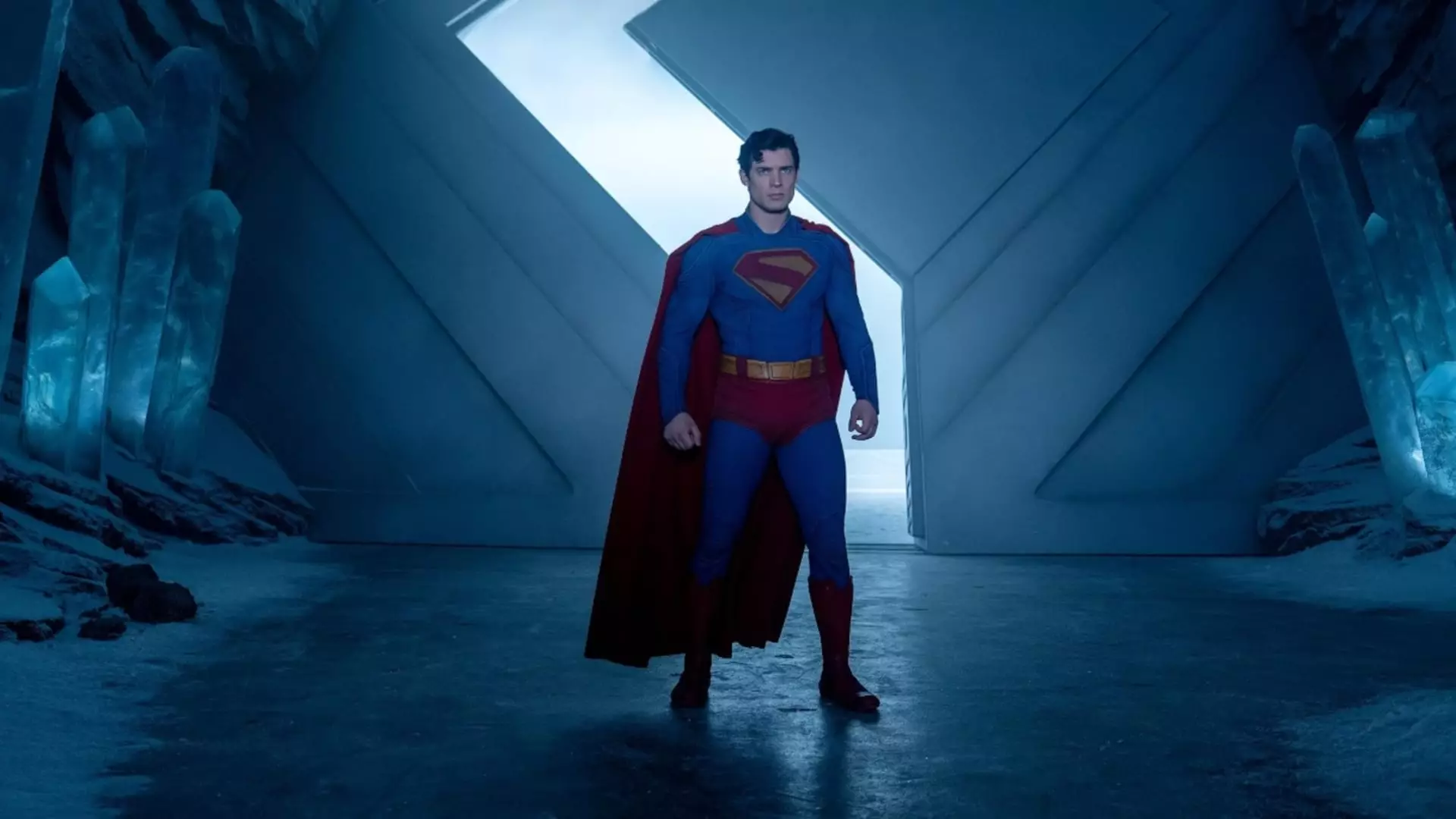The recent debut of Warner Bros.’ “Superman” signifies more than just another superhero flick hitting the screens—it embodies a pivotal moment for DC’s cinematic universe. The film’s impressive $22.5 million in preview showings underscores a genuine buzz and audience anticipation, yet it also sets the stage for a high-stakes gamble that hinges on whether this momentum can sustain throughout the summer and beyond. While these preview numbers mark a record for Superman films and suggest a promising opening, they also unveil the inherent unpredictability of rebooting such an iconic hero in today’s saturated entertainment market.
At face value, the marketing machine surrounding “Superman” appears robust, and early indicators are positive. Still, a deeper analysis reveals that initial enthusiasm does not inherently translate into long-term success. Historically, even blockbuster previews—like those for “The Dark Knight Rises” and “Batman v. Superman”—have sometimes failed to meet audiences’ soaring expectations, especially when the core narrative struggles to resonate.
This new iteration under James Gunn and Peter Safran attempts to reshape Superman’s narrative for modern sensibilities, emphasizing thematic hopefulness over grim realism. Their strategy appears rooted in a belief that a positive, archetypal hero can reignite enthusiasm among both longtime fans and newcomers. But such a pivot entails considerable risks: fans have grown accustomed to darker, grittier portrayals, and shifting to a more optimistic tone might alienate segments that prefer traditional or more complex storytelling. The challenge lies in balancing reverence for the mythos with a fresh, engaging perspective that genuinely captivates a diverse audience.
Rebuilding Faith in the DC Brand Amid Mixed Reviews
The overall reception from critics provides a cautiously optimistic outlook, with an 83% score on Rotten Tomatoes, signaling general approval of the film’s reboot approach. Critics seem to appreciate the return to a hopeful, heroic tone—an intangible yet powerful quality that could differentiate this Superman from preceding attempts. However, critical acclaim alone is insufficient to guarantee box office longevity or franchise sustainability.
The real question is whether Warner Bros. and DC can translate that critical goodwill into persistent audience engagement. The company’s historical struggles with franchise consistency, tonal shifts, and fan expectations have often resulted in a rollercoaster of box office performances. Therefore, despite the promising start, the real test will be whether the film can sustain viewers’ interest over the summer, turning initial curiosity into repeat viewings, merchandise sales, and cultural relevance.
The challenge for Gunn and Safran is to maintain this positive momentum while avoiding the pitfalls of overhyping or misjudging audience tastes. Their vision involves a carefully curated 10-year plan, but such long-term ambitions are vulnerable to unforeseen hurdles—be it sequel fatigue, changing viewer preferences, or the crowded summer release schedule. The delicate balancing act they face is clear: honor the beloved source material while innovatively steering DC into a new narrative future.
Is the Future Bright or Blighted for DC’s Superhero Universe?
The coverage surrounding the film also hints at broader themes about the shifting landscape of superhero cinema. Warner Bros., along with Gunn and Safran’s stewardship, seems to be betting on nostalgia, heroism, and optimism to revive a franchise that has, until recently, struggled to find its footing. This approach aligns with a wider trend: leaning into characters’ archetypal qualities and core stories to forge stronger emotional connections.
Ultimately, the real test of this reboot is whether audiences will rally around a more hopeful, character-driven vision of Superman in the face of mounting entertainment options and evolving franchise tastes. If the film successfully draws families and younger viewers into theaters, it could herald a promising new chapter that balances legacy with innovation. Yet, if it fails to meet expectations or if the tone feels disconnected from audience demands, the project risks becoming another fleeting splash in the streaming and box office waters.
The stakes are undeniably high—not just for the film’s financial performance but for the cultural revival of one of superhero mythology’s most enduring icons. The optimistic outlook is buoyed by promising early numbers and critical approval, but skepticism remains—can this reboot truly transcend fan expectations and reinvigorate the genre? Or will it fall prey to the same pitfalls that have hampered DC’s ambitious efforts before? Only time will tell, but one thing is clear: this is a decisive moment that could very well shape the future of superhero storytelling in cinema.


Leave a Reply